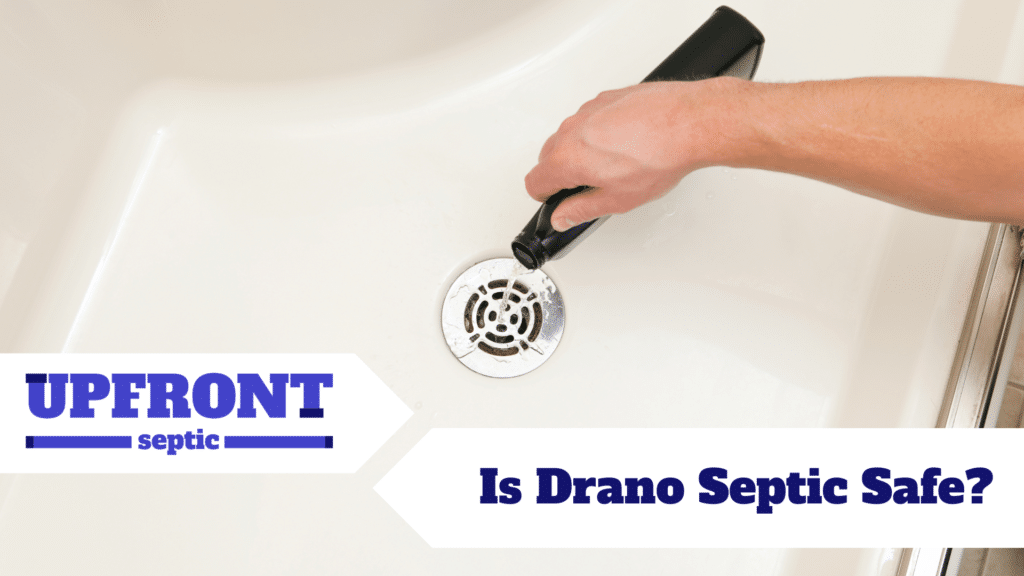Is Drano Septic Safe? A Comprehensive Guide
At Upfront Septic, we understand that maintaining a healthy septic system is crucial for your home’s plumbing. One common question we receive from homeowners is whether Drano, a popular drain cleaner, is safe to use with septic systems. In this blog post, we’ll delve into this question and provide you with the information you need to make an informed decision.
What is Drano?
Drano is a well-known chemical drain cleaner that works by breaking down clogs and clearing blocked pipes. It contains powerful ingredients like sodium hydroxide (lye), bleach, and aluminum, which react together to produce heat and break down organic matter. While Drano can be effective in clearing clogs, its chemical composition raises concerns when it comes to septic systems.
Is Drano Safe for Septic Systems?
The short answer is no, despite what the official Drano website says, Drano is not recommended for septic systems. Here’s why:
1. Disrupts Bacterial Balance
Septic systems rely on a delicate balance of bacteria to break down solid waste. The harsh chemicals in Drano can kill these beneficial bacteria, disrupting the natural decomposition process. This can lead to a buildup of solids in the septic tank, potentially causing clogs and system failure.
2. Corrodes Pipes and Tanks
Drano’s strong chemical reaction generates heat, which can corrode pipes and the septic tank itself over time. This corrosion can lead to leaks, cracks, and costly repairs.
3. Environmental Impact
The chemicals in Drano can leach into the soil and groundwater, posing environmental risks. This is particularly concerning in areas with high water tables or where drinking water sources are nearby.
Safer Alternatives for Septic Systems
Instead of using Drano, consider these safer alternatives for maintaining your septic system and clearing clogs:
1. Enzyme-Based Cleaners
Enzyme-based drain cleaners use natural enzymes and bacteria to break down organic matter. These products are safe for septic systems and help maintain the bacterial balance necessary for proper waste decomposition.
2. Manual Methods
For minor clogs, a plunger or a drain snake can be effective without introducing harmful chemicals into your system. These tools physically remove blockages without affecting your septic tank’s bacterial ecosystem.
3. Regular Maintenance
Regularly scheduled septic tank pumping and inspections by professionals, like those at Upfront Septic, can help prevent clogs and maintain the health of your system. Keeping a maintenance schedule ensures your septic system functions efficiently and avoids costly repairs.
Preventing Clogs
Prevention is the best approach when it comes to maintaining a septic system. Here are some tips to prevent clogs and keep your system running smoothly:
- Be Mindful of What Goes Down the Drain: Avoid flushing non-biodegradable items, grease, and food particles down the drain.
- Use Water Efficiently: Reduce water usage to prevent overloading your septic system.
- Regular Inspections: Schedule regular inspections and maintenance with a professional septic service provider.
While Drano might seem like a quick fix for clogged drains, it poses significant risks to your septic system. At Upfront Septic, we recommend using safer alternatives and regular maintenance to keep your septic system healthy and functional. If you’re experiencing persistent clogs or septic issues, don’t hesitate to contact us for professional assistance.
By taking a proactive approach to septic system care, you can ensure its longevity and protect both your home and the environment. Trust Upfront Septic for all your septic system needs in Western Washington.

